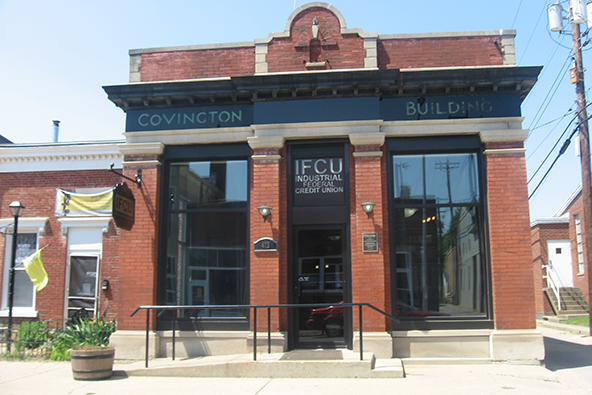Credit Unions and Debit Interchange, New Year’s Edition

As I commented yesterday, a Federal Trade Commission (FTC) report published a week ago concluded that credit unions and other small financial institutions have suffered no adverse effects from the Durbin Amendment-mandated reduction of debit interchange fees. Not losing a beat, representatives of these smaller banks have flocked to the Washington Post to tell us just how misguided the FTC’s judgment has been. “[T]he government reports [the Government Accountability Office had earlier reached a similar conclusion to that of the FTC] are premature and don’t necessarily reflect the impact on their businesses”, we are primly informed.
Well, there is a rather big problem with what the credit union guys have been telling the Washington Post: their statements have not been supported by the facts. The FTC has looked into data on the debit interchange revenues collected by card issuers in the first quarter after the lower interchange rates took effect (the fourth quarter of 2012) and has found that, as one would expect, the exempted institutions have collected much higher fees than the non-exempted ones. Unmoved, some of the credit union guys are now claiming that another amendment is actually causing their interchange revenues to fall, but are giving us no data. Let’s see what we can make of all that.
The Durbin Amendment Effect
So here is what one small bank executive tells the Washington Post:
The fees that the credit card processors pass on as revenue to banks like ours have definitely gotten smaller… Those companies took a hit when revenue dropped for the large banks, so they passed some of that loss on to us in the form of lower rates on processing fees. Our loss hasn’t been huge, not as high as what the large banks have been hit with, but still, it’s been significant.
Now, there are many things wrong with this short statement; in fact, it sounds as if it were made by someone with no ties at all to the payment processing industry. However, for the sake of brevity, I will leave that aside and just address the main point here: that debit interchange revenues at small banks have fallen.
Firstly, let’s remind ourselves one more time what the Durbin Amendment did. So, once again, that amendment to the Dodd-Frank financial legislation reform gave the Federal Reserve authority to ensure that debit interchange fees, which were until then set solely by the card networks, and are paid by merchants to issuers for processing debit card payments, were “reasonable and proportional” to the cost of processing of these transactions. In effect, the Fed was told to reduce these fees and it responded by ruling that, for each debit transaction, issuers subject to the new cap (non-exempt issuers) may not receive a fee that exceeds $0.21 plus 0.05 percent of the transaction amount, plus $0.01 for implementing certified fraud-prevention programs. However, the Fed also ruled that this new standard did not apply to issuers with consolidated assets of $10 billion or less (exempt issuers).
And now here is what the FTC had to say about the effects of the new rule on debit interchange revenues:
According to data collected by the Federal Reserve Board and released in May 2012,19 interchange fees paid to exempt issuers are higher than those paid to non-exempt issuers.
…
Within each category of exempt and non-exempt issuers, there is variation in the interchange fees set by competing payment card networks. For instance, in the period October 1 through December 31, 2011, fees for non-exempt issuers ranged from 15 cents per transaction to the maximum of 24 cents, and fees for exempt issuers ranged from 15 cents to 54 cents per transaction.
For perspective, prior to the enactment of the debit interchange cap on 1 October, 2011, the average interchange fee amount was $0.44 per transaction. The FTC isn’t giving us an average for the post-reform period, we only get ranges, but the one for the exempt issuers is pretty much the same as it was during the pre-reform period, strongly suggesting that there is no reduction in revenue. In fact, that conjecture is confirmed by another of the bank representatives quoted in the Washington Post, who goes on to state a somewhat more valid concern.
The Effect of Low-Cost Payment Processors
Here is what said bank representative had to say:
The provision that could really start to lower interchange revenues for smaller institutions took effect in April, and in the only full quarter since then, the third quarter of 2012, we saw the first-ever decline in interchange revenue for credit unions… We are concerned about whether that was a one-time downward shift or the first of several quarters of decline.
So what is that about? Well, the FTC explains it pretty well in the above-mentioned report:
Second, the section required the Federal Reserve Board to issue regulations to end network exclusivity for processing electronic debit transactions: issuing banks and payment card networks must now permit merchants to choose between two or more unaffiliated competing payment networks for such processing. Third, the section required Federal Reserve Board regulations prohibiting issuers and payment networks from adopting rules or fees that inhibit merchants’ ability to select which network will process their transactions. These statutory requirements were intended to increase competition among networks that process electronic debit payments.
The FTC goes on to observe that
Now that merchants have new choices for routing to lower cost processors, it appears that payment card networks and other processors have begun to compete for merchant business by offering a range of interchange rates.
The range in question is the one mentioned above — 15 cents to 54 cents per transaction. It should be noted, however, that, at least in the case of UniBul, merchants have always been able to choose their payment processing platforms. It is true that smaller merchants usually have no clue that these platforms exist in the first place or what they do, never mind knowing that they can select one of them, but larger and more experienced merchants have typically been fully aware of this fact. So I’m not sure how much of a difference we will see on account of this change.
The Takeaway
Regular readers of this blog are well aware that at UniBul we are no fans of the Durbin Amendment, to say the least. As we have said on many occasions, the debit interchange cap represents a government-mandated redistribution of revenues from one industry to another, something the government has no business doing and for which all of us are paying through higher banking fees, as issuers are developing new revenue sources to replace the lost one. Yet, all of the data that we have seen so far are unequivocal: credit unions and community banks have been unaffected by the debit interchange cap. Until the small banks can prove otherwise — using hard data — they should stop whining.
Image credit: Wikimedia Commons.


Credit unions are having it good these days. Their business was left unharmed by the Durbin Amendment, leaving them free to grab as much market share from the big guys as they could. I wonder how well they’ve done.